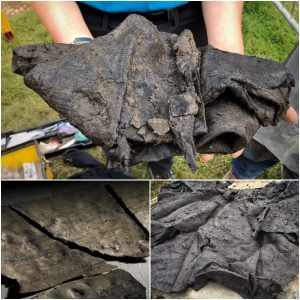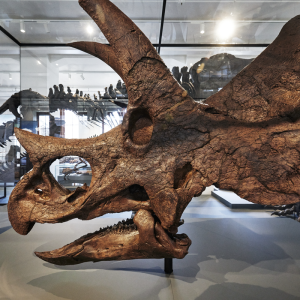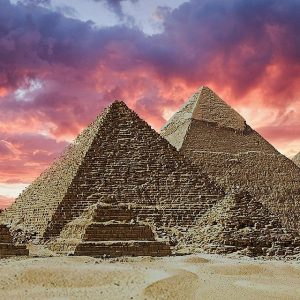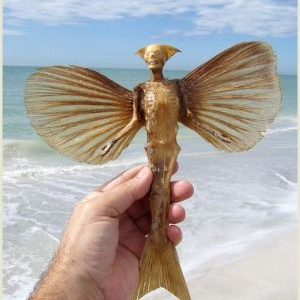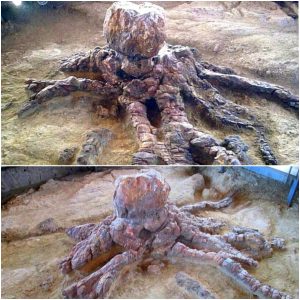2,000-year-old chariot unearthed at Pompeii

The chariot was found in a stable located near the suburban villa in Civita Giuliana, just outside the walls of Pompeii. The villa was previously excavated in 2018 and is believed to have belonged to a high-ranking military officer or a Roman magistrate.

The chariot, which is remarkably well-preserved, is a two-wheeled carriage made of iron, bronze, and tin. It features intricate designs and decorations, including medallions with figures of Cupids, satyrs, and nymphs. The researchers believe that these embellishments suggest that the chariot was likely used for special occasions and parades rather than everyday transportation.

The discovery of this chariot sheds light on the transportation system of ancient Rome. It provides valuable insights into the technical expertise and craftsmanship of the time, highlighting the Romans’ advanced metalworking skills.

The excavation team also found the remains of horses, likely from the same era, near the chariot. The horses were likely harnessed to the chariot and perished during the volcanic eruption of Mount Vesuvius in 79 AD, which buried Pompeii under a thick layer of ash and preserved it for centuries.

This finding is particularly significant as it adds to the growing body of knowledge about Pompeii and its inhabitants. It offers a unique glimpse into the daily lives of the people who lived in this ancient city, giving archaeologists and historians a better understanding of Roman society and culture.

The chariot will undergo a thorough restoration process to ensure its preservation and eventual display in Pompeii. The site continues to be an active area of excavation, and researchers hope that further discoveries will shed more light on the rich history of this extraordinary archaeological site.

The unearthing of this 2,000-year-old chariot at Pompeii is a remarkable achievement that highlights the ongoing importance and significance of archaeological research. It allows us to connect with the past and gain a deeper appreciation for the ancient world and its enduring legacy.
